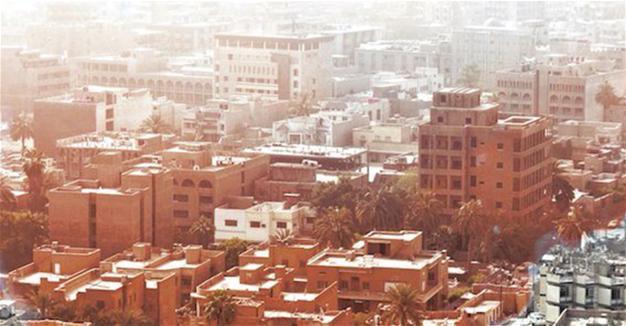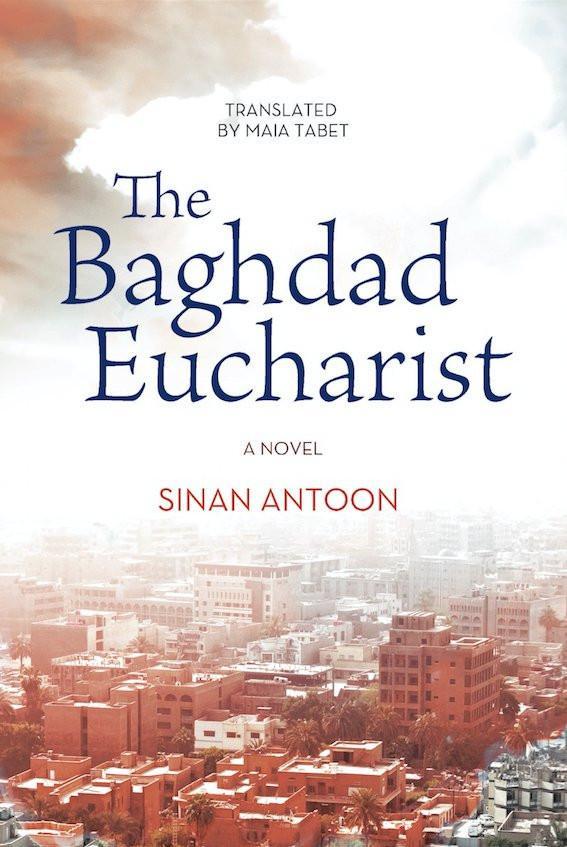‘The Baghdad Eucharist’ by Sinan Antoon
William Armstrong - william.armstrong@hdn.com.tr
 ‘The Baghdad Eucharist’ by Sinan Antoon, translated by Maia Tabet (Hoopoe, American University in Cairo Press, 136 pages, $15)
‘The Baghdad Eucharist’ by Sinan Antoon, translated by Maia Tabet (Hoopoe, American University in Cairo Press, 136 pages, $15)
In the opening sentence of “The Baghdad Eucharist,” a young woman storms out after an argument, blasting her cousin for “living in the past.” The disagreement between Maha and Youssef lights the touch paper of this short, bruising novel which dramatizes the clash of generations within an Iraqi Christian family in the violent crucible of contemporary Baghdad.

The novel is Antoon’s third, published in Arabic with the title “Ya Maryam” (Ave Maria) and shortlisted for the International Prize for Arabic Fiction in 2013. This taut English translation appears a few years after Antoon’s equally unsettling, equally impressive “
The Corpse Washer.” Once again, he delicately weaves reflections on social and political breakdown with a story of private and personal trauma. Commenting on contemporary history through the prism of one family’s difficulties could feel artificial in the hands of a less skilled author, but Antoon pulls it off with conviction.
Maha and her husband have moved into Youssef’s house after a car bomb destroyed their own apartment. The distant cousins may now live in the same house but mentally they are worlds apart. “Deprivation, violence, and displacement were the first things she tasted in life. I, on the other hand, had lived in prosperous times, which I still remembered and continued to believe were real,” Youssef reflects. Maha accuses him of being unwilling to accept the brutal reality of a present-day Baghdad roiled by conflict and rising sectarianism. “Perhaps the past was like the garden which I so loved and which I tended as if it were my own daughter, just in order to escape the noise and ugliness of the world,” he acknowledges.
Youssef has spent his life working a comfortable job in Iraq’s state date palm company, living in one of the calmer areas in Baghdad. Despite rising insecurity, Youssef refuses to suffer the “humiliations” of becoming a refugee, opting instead to cultivate his “own paradise in the heart of hell, my own ‘autonomous region.’” Much of his time is passed listening to old records and reflecting on the fate of friends and family members who have scattered like pomegranate seeds around the world.
But Youssef cannot ignore the sorry state of the date palms in Baghdad, wilted or cut down “so that the Americans can see the snipers and the snipers can see them.” They provide a useful metaphor: Youssef reflects that the date palm is “the weathervane for human affairs. The fortunes of the two were inextricably linked.” Naturally, they also reflect the sectarianism that rose particularly after the U.S.-led invasion and overthrow of Saddam Hussein. As one character remarks ironically: “I swear to God, even the date palms are Sunni and Shiite now.”
The second section of the book is narrated by Maha. Angry after their argument, she is scathing about Youssef, “cloistered in his own circumscribed world.” The daily struggles she has to endure as a young woman in the Iraqi capital seem to go unrecognized by him. She is tired of being labelled a “minority” and ogled for not wearing a hijab. Terror attacks are fueling an exodus of Iraq’s once strong historic Christian population, and Maha has friends and relatives who have been killed. The book specifically refers to the jihadi attack on the Our Lady of Salvation Chaldean church in December 2010 that killed over 50 people.
Occasionally the novel’s dialogue is too exposition-heavy. At one point Youssef tells Maha that “many countries and peoples have gone through far worse, and then things have settled down. That’s the cycle of history.” At another, family friend Saadoun speechifies: “Between Iranians, Arabs, and Americans, our country has been decimated … Has there been sectarianism all along and we simply weren’t aware of it? Where was it lurking all that time? Or is it all a result of foreign interference and this hatred for us, and all those people returning from abroad who brought all their filth with them?”
But on the whole “The Baghdad Eucharist” is subtle and bracing. At a time when the alt-right in the West often exploits the troubles of the Middle East’s embattled Christians for its own warped cause, the novel stands as an eloquent, dignified rebuke. It ends in a brutal but poignant climax, packing a big emotional and intellectual punch.
* Follow the Turkey Book Talk podcast via iTunes here, Stitcher here, Podbean here, or Facebook here.
 ‘The Baghdad Eucharist’ by Sinan Antoon, translated by Maia Tabet (Hoopoe, American University in Cairo Press, 136 pages, $15)
‘The Baghdad Eucharist’ by Sinan Antoon, translated by Maia Tabet (Hoopoe, American University in Cairo Press, 136 pages, $15) The novel is Antoon’s third, published in Arabic with the title “Ya Maryam” (Ave Maria) and shortlisted for the International Prize for Arabic Fiction in 2013. This taut English translation appears a few years after Antoon’s equally unsettling, equally impressive “The Corpse Washer.” Once again, he delicately weaves reflections on social and political breakdown with a story of private and personal trauma. Commenting on contemporary history through the prism of one family’s difficulties could feel artificial in the hands of a less skilled author, but Antoon pulls it off with conviction.
The novel is Antoon’s third, published in Arabic with the title “Ya Maryam” (Ave Maria) and shortlisted for the International Prize for Arabic Fiction in 2013. This taut English translation appears a few years after Antoon’s equally unsettling, equally impressive “The Corpse Washer.” Once again, he delicately weaves reflections on social and political breakdown with a story of private and personal trauma. Commenting on contemporary history through the prism of one family’s difficulties could feel artificial in the hands of a less skilled author, but Antoon pulls it off with conviction.